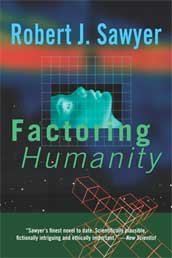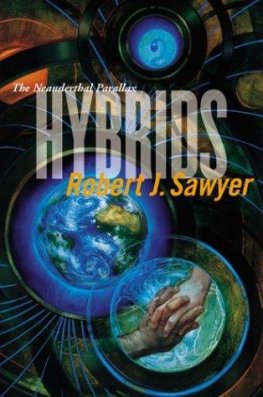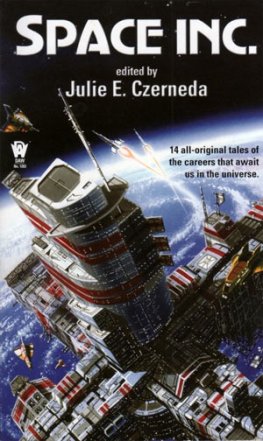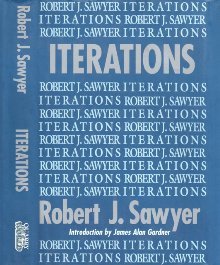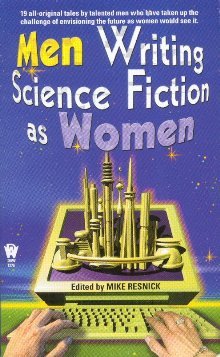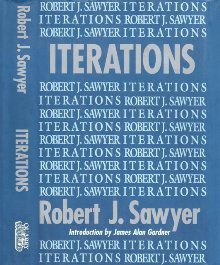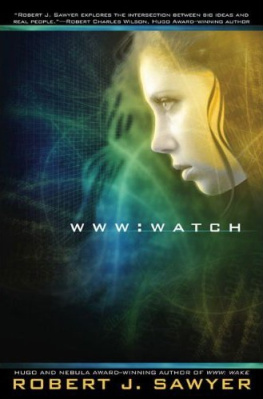Robert Sawyer - Iterations
Here you can read online Robert Sawyer - Iterations full text of the book (entire story) in english for free. Download pdf and epub, get meaning, cover and reviews about this ebook. year: 2000, publisher: Paper Orchid Press, genre: Romance novel. Description of the work, (preface) as well as reviews are available. Best literature library LitArk.com created for fans of good reading and offers a wide selection of genres:
Romance novel
Science fiction
Adventure
Detective
Science
History
Home and family
Prose
Art
Politics
Computer
Non-fiction
Religion
Business
Children
Humor
Choose a favorite category and find really read worthwhile books. Enjoy immersion in the world of imagination, feel the emotions of the characters or learn something new for yourself, make an fascinating discovery.
- Book:Iterations
- Author:
- Publisher:Paper Orchid Press
- Genre:
- Year:2000
- ISBN:0-9687939-0-8
- Rating:3 / 5
- Favourites:Add to favourites
- Your mark:
- 60
- 1
- 2
- 3
- 4
- 5
Iterations: summary, description and annotation
We offer to read an annotation, description, summary or preface (depends on what the author of the book "Iterations" wrote himself). If you haven't found the necessary information about the book — write in the comments, we will try to find it.
Iterations — read online for free the complete book (whole text) full work
Below is the text of the book, divided by pages. System saving the place of the last page read, allows you to conveniently read the book "Iterations" online for free, without having to search again every time where you left off. Put a bookmark, and you can go to the page where you finished reading at any time.
Font size:
Interval:
Bookmark:
Robert J. Sawyer
Iterations
Im going to have to kill you, I said to myself, matter-of-factly.
The face looking back at me across the desktop was my own, of course, but not the way I was used to seeing it; it wasnt flopped left-to-right like it is in a mirror. The other me reacted with an appropriate mixture of surprise and disbelief. The shaggy eyebrows went upGod, why dont I trim those things?the brown eyes widened, and the mouth opened to utter a protest.
You cant kill me, heIsaid. Im you.
I frowned, disappointed that he didnt understand. Youre a me that never should have existed.
He spread his arms a bit. Whos to say which of us should have existed?
One of the interesting things about working in the publishing industry in Canada is this: its full of Americans who came here during Vietnam. And, even if they didnt want to go to war, some of themdo know how to get guns. Whos to say which of us should have existed? I repeated. I took the Glock 9 mm that Jack Spalding had procured for me out of my pocket and pulled the trigger. I am.
* * *I was at home with Mary, my wife and, until everything had fallen apart, my business partner. We were in our bedroom, and I was trying to get through to her. Dont you see? I said, sitting on the edge of the bed. None of this is realit cant be.
She sat down next to me and began brushing her hair. What are you talking about?
You. Me. This bed. This house. This planet. Its all faked. Its all a computer-based simulation.
Mary shook her head slightly. She hated it when I talked like this.
Its true, I said. Its trueand I can prove it.
She pressed her lips tightly together, and blew air out of her nose. She didnt say How? She didnt say anything.
I wished there were a more obvious way. I wished I could grab hold ofof that wall there, say, and pull it aside, revealing the machinery beyond, but, of course, I couldnt. The wall was simulated perfectly; the rest of Toronto was simulated perfectly, too. So was all of Canada, of North America, the entire planet. There was no place I could take her where she would see that corners had been cut, see scaffolding propping up a false front to a non-existent building. This Earthat least all of its surface, and its atmosphere thinning out to almost nothing a few hundred kilometers up, and its rocky crust, and maybe even some portion of its mantlewere flawlessly reproduced.
But even they had limits. Yes, they could reproduce Earth, or as much of it as humans could ever access, but
Look, I said. Imagine a space probe that could travel at one-tenth the speed of light.
She was staring at me as though I wasnt even speaking English anymore.
I pressed on. Imagine that space probe, taking decades to get to the next star. And imagine it finding raw materials there to build ten duplicates of itself, and then sending those duplicates, at the same speed, to ten other nearby stars. Even if it took fifty years to find the raw materials and make the duplicates, and fifty more years for those duplicates to travel to their target stars, if the process continued, how long do you think it would take for such probes to colonize the entire galaxy?
What are you talking about? said Mary again.
Sixty thousand years, I said, triumphantly. Give or take. One single probe, launched into space by any civilization anywhere in the Milky Way, could colonize this whole giant galaxy in just sixty thousand years.
Our little publishing company had been called CanScience Books; Id been editorial director. Mary didnt know much about science, but she was a wiz at accounting. So?
So, I said, the universe is maybe twelve billion years old. I grabbed her shoulders. Dont you see? Someone somewhere must have launched self-replicating probes like the ones I described. This planet should have been visited by them but it hasnt.
Maybe there arent any other civilizations.
Of course there are. There must be. It drove me nuts that she never read the books wed published.Everything we know about physics and chemistry and biology says the universe should be overrun with life. But none of it has come here. I shifted my weight; maybe I shook her slightly. I so much wanted her to see. And what about SETI? The search for extraterrestrial intelligence? Weve been listening for half a century now and havent picked up a thing. We shouldnt need to do anything more than point a radio dish up at the night sky to pick up thousandsmillionsof alien signals. But theres nothing.
And think about the moon. Do you know how many people have gone to the moon? Twelve! Thats all, in the total history of our racetwelve people have stood on its surface. And no one has gone back; no one even has plans to go back. And what about Mars? We should have landed on it within a few years of going to the moon, but no ones made it thereand, again, no one is planning to go. And the space probes we send there keep failing. The Mars Climate Orbiter, the Mars Polar Landercomplete write-offs! I mean, lets be real: an important mission to Mars junked because some engineer couldnt convert between imperial and metric measurements? Its unbelievable.
I still dont see began Mary.
Let me spell it out, then: its one thing to simulate the Earth. Thats a big computing problem, sure, but its doable.
Not on any computer Ive ever seen, said Mary.
Well, no, of course its not doableyet. But it will be. Eventually, the Earth and everyone who ever lived on itwill be simulateable on sufficiently advanced computers.
When? said Mary.
Who knows? A million years from now? A billion? Ten billion? Or maybeFrank Tipler wrote about thismaybe at the very end of time, as the universe is collapsing back down in a big crunch. Eventually there will be sufficient computing power to simulate the entire planet and everyone who ever lived on it.
How would they know anything about us? asked Mary. How could they possibly simulate you and me without records of what we were like?
They wont need any records. Why couldnt she see this? A human being consists of about thirty thousand active genes. That means that there are about three-to-the-millionth-power possible genetically distinct humans. And there are about 2-to-the-10th-to-the-17th power possible human memories. Multiply it all out, and youll find that you could reproduce all possible versions of our worldincluding every possible combination of human beings, with every possible set of memoriesin 10-to-10th-to-the-123rd bits.
Ten to the tenth to
To the 123rd, yes, I said. And that amount will surely eventually be computable. Meaning that you couldwell, Tipler used the word resurrect, and thats as good as anyyou could resurrect everyone who ever lived as computer simulations, without knowing anything specific about them.
Mary looked at me. And you think thats what we are? Resurrected versions of people who died billions of years ago?
We have to be. Its the only thing that explains the absence of extraterrestrial probes here, or of radio signals from other civilizations. To simulate Von Neumann probesthats what those self-replicating robots are calledand the chatter of alien races would mean simulating the rest of the universe, with its billions of different lifeforms. But they dont have enough computer memoryor, if they do, they consider it wasteful. So, yes, this world seems real to us, but its fake. It has to be.
Oh, Erik, said Mary, shaking her head, then letting out a sigh. Go to sleep.
She kissed me and lay down.
I lay down too, but it was hours before I fell asleep.
* * *If Im a computer simulation, created millions or billions of years in the future of what I think of as the present, and if I was created simply as one possible human being with one possible set of memories, do other versions of me exist?
Font size:
Interval:
Bookmark:
Similar books «Iterations»
Look at similar books to Iterations. We have selected literature similar in name and meaning in the hope of providing readers with more options to find new, interesting, not yet read works.
Discussion, reviews of the book Iterations and just readers' own opinions. Leave your comments, write what you think about the work, its meaning or the main characters. Specify what exactly you liked and what you didn't like, and why you think so.



